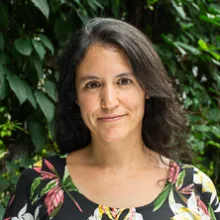By Florencia Ortúzar Greene, AIDA attorney
The 2016 Río Olympics have come to an end. Over the last few weeks, the world has once again borne witness to the greatest achievements of the human body, to the forging of new world records.
But, amid high levels of air and water pollution, the thousands of competitors that met in Brazil affirmed that one record must not be broken: 1.5 degrees Celsius.
The Earth has been warming steadily in recent years, causing the melting of permafrost, rising oceans, increasingly dangerous storms and floods, and more intense and frequent droughts. Exceeding a global temperature increase of 1.5 °C would trigger a global catastrophe with unknown consequences.
The opening message
The Olympics put the issue of climate change on the table once again. Athletes from around the world called on us all to do something about it.
During the opening ceremony on August 5, images of clouds of pollution filled Maracaná Stadium in Río de Janeiro. Alarming projections showed cities and regions of the world being flooded. The peace symbol, altered to resemble a tree, was projected on the ground while a voice warned that our planet’s ice caps are melting quickly.
Athletes from around the world joined in a campaign to ask the world not to break the record of 1.5 degrees, implying that the union of all nations is necessary to control global warming.
Each Olympian received a tree seed, which will grow into the Athlete’s Forest, cementing their legacy in Río’s Deodoro Olympic Park.
Bad air and water quality
In a report on water quality in Río, the World Health Organization (WHO) made recommendations to athletes competing in aquatic events. The organization told them to cover cuts and scrapes with waterproof bandages; to avoid ingesting the water; to wash as soon as possible after exposure; to stay in it as briefly as possible; and to avoid contact with all water after it rains. Clearly, water in Río carries significant health risks.
Air pollution in Río has also reached dangerous levels, authorities have warned. Promises to improve air quality before the big event were not fulfilled. According to government data, since 2008 the city’s air has contained airborne particles that cause respiratory illnesses at a concentration three times higher than annual WHO-recommended limits.
Another key to the planet’s health is the Amazon rainforest, of which Brazil is the principle guardian. The Amazon stores huge amounts of carbon, taking up some of what we release into the atmosphere. But this natural treasure is at risk. According to the World Wildlife Fund, over the last several years the Amazon has lost at least 17 percent of its vegetation, and deforestation has released large amounts of carbon into the atmosphere.
The protection of this treasure is a responsibility humanity is failing to live up to.
The fight we must win
This month, nearly 11 thousand competitors from all around the world united in the world’s most important athletic competition. It was a unique occasion to reflect on the urgent challenges facing humanity.
AIDA helps the nations of Latin America tackle these challenges. We work to improve air quality, and mitigate short-lived climate pollutants, which remain in the air for a relatively short time, yet generate extreme changes in climate, degrade air quality, and damage crop yields.
We believe the fight against climate change is the most critical of all fights. To truly achieve victory, we must ensure we don’t break the 1.5 °C record.
Our ability to win it requires us all to work as one global team.
Florencia Ortúzar Greene

Florencia is the Director of AIDA's Climate Program, and Coordinator of the Climate Finance Area, working from Santiago, Chile. She obtained her Law degree from the Pontificia Universidad Católica de Chile and also completed an MSc in Environmental Politics and Regulation at the London School of Economics (LSE) in England. She joined our team in 2012 and collaborates with Climate and Ecosystem programs. She enjoys spending time with her pets as well as cooking, camping and nature trekking.
